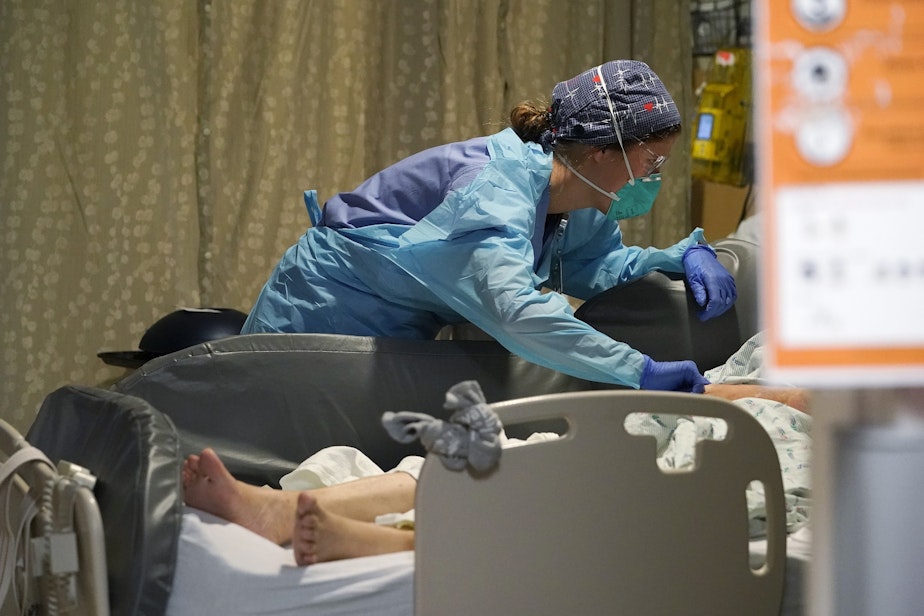Pinched for staff, this Kitsap ER nurse called on firefighters to step in

On the night of Saturday, Oct. 8, firefighters were called in to help on the Kitsap Peninsula, but it wasn't because of a fire.
Instead, an overwhelmed nurse at the ER at St. Michael Medical Center in Silverdale requested firefighters' help for managing patients.
Kelsay Irby was the charge nurse in the ER that night and she says ongoing acute staffing shortages forced her to make that call.
Kelsay Irby became a nurse because she wanted to help people. She said this is a common experience for nurses.
"The reason that 98% of people went into nursing was because we want to help people," Irby said. "Yes, that sounds very Pollyanna and yes, that sounds very goody-goody. But it really is at the heart of the matter."
Irby is a charge nurse in the ER at St. Michael Medical Center in Silverdale, which is a part of Virginia Mason Franciscan Health. Irby says that it has become difficult to provide adequate care for patients recently.
On Oct. 8, the situation reached a crisis point, according to Irby. A combination of short staffing and a ransomware attack led Irby to call the non-emergency line for 911 dispatch for assistance.
"I asked if they had any crews that could come help us in the lobby with monitoring people, starting IVs, drawing blood, that kind of thing, just to try to have some oversight and depressurize that lobby, and take some pressure off my nurses and hopefully catch any very sick patients," Irby said.
Sponsored
Firefighters arrived and assisted with patients. There is a nationwide nurse shortage, but Josh Farley, who wrote about the night of Oct. 8 at St. Michael Medical Center in the Kitsap Sun, said the hospital is particularly hard-hit by this shortage.
"We've heard a great number of stories of the delays of patient care, not the problem with the care once people receive it," Farley said. "We've heard the line that yes, there is a national staffing problem, we did just go through a pandemic, those are true statements for all medical facilities in the United States. But for some reason right now, this particular facility is in crisis."
Irby puts the blame for this nurses shortage on senior management, saying that they aren't listening to nurses' recommendations for how to improve staff retention.
Chad Melton, president of St. Michael, acknowledged that the hospital does need to do a better job of recruiting and developing the workforce at the medical center. He also said that St. Michael has been making steps towards its goals, like paying nurses one of the highest rates in the region and engaging with team members every day.
CommonSpirit Health, which is the parent company of Virginia Mason Franciscan Health, also sent a statement about the ransomware attack:
Sponsored
“We are in the process of restoring those systems that were taken offline. As systems come back online, our providers will be able to access their patients’ electronic health records, and patients will be able to use the MyChart patient portal. It will take some time before we can restore full functionality and we continue work to bring our systems up as quickly and safely as we can. For Virginia Mason Franciscan Health:
• Our providers are now able to access their patients’ electronic health records.
• Some system functionality, including patient access to MyChart, is expected to be available in the coming days.
• Any other updates, such as what this may mean for efforts to reschedule patient appointments, will be forthcoming.
Throughout this process, we have taken steps to protect our systems and maintain continuity of care. We are only taking steps to restore systems when it is safe and secure to do so. We thank our patients, clinicians, team members and the community for their patience.”






